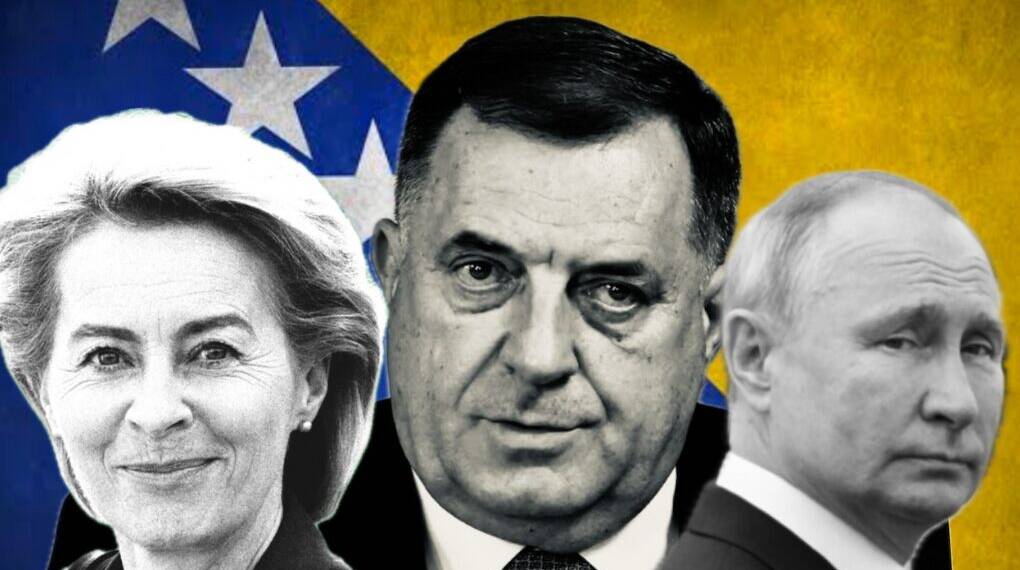Bosnian Serb leader Milorad Dodik’s recent removal from the presidency of Republika Srpska (RS) marks a significant milestone in Bosnia and Herzegovina’s fraught political landscape, with far-reaching implications for the regional balance in the Western Balkans, as well as the interests of Russia, Europe, and NATO. This decision by Bosnia’s Central Election Commission (CEC) following an appeals court sentencing Dodik to one year in prison and banning him from political activity for six years responds to his persistent defiance of the peace-building mechanisms established by the 1995 Dayton Accord and challenges Bosnia’s fragile post-war order.
Dodik’s Removal and the Domestic Fallout
Dodik, a staunch separatist and pro-Russian figure, has long been a polarizing actor within Bosnia’s tripartite presidency system, advocating for Republika Srpska’s secession and potential unification with Serbia. His vocal rejection of the authority of the Office of the High Representative (OHR)—the international body overseeing the Dayton peace settlement—and repeated clashes with Bosnia’s constitutional institutions culminated in his legal conviction for failing to comply with rulings from the international envoy. Despite the legal rulings and the CEC’s mandate removing him from office, Dodik remains defiant, asserting his intent to maintain power with parliamentary backing and challenging the decision before Bosnia’s Constitutional Court.
The Bosnian Serb government has denounced the removal as “unconstitutional” and politically motivated, reflecting entrenched divisions within the country. Dodik enjoys vocal support from key international allies, most notably Serbian President Aleksandar Vučić and Hungarian Prime Minister Viktor Orbán. Orbán’s public backing, underscored by recent infrastructure and energy investments in Republika Srpska, signals Hungary’s strategic interest in buttressing Dodik’s position against EU and Western pressures. Contrastingly, the European Union has emphasized the binding nature of the court rulings, underscoring Bosnia’s commitment to rule of law and political stability as part of its EU accession aspirations.
Also Read: Hungarian PM Orbán Says ‘U.S. President is Not Strong Enough’ To End the War in Ukraine
Will This be a Setback for Russia?
Dodik’s ouster is a setback for Russian influence in the Balkans, where Moscow has historically leveraged ethnic Serb nationalism to maintain a foothold. Dodik’s pro-Russian stance and separatist agenda have been key vectors for Russian geopolitical objectives, including efforts to destabilize EU and NATO integration processes in the region. His removal underlines a hardening of Bosnia’s commitment to its constitutional order and the international oversight mechanism, potentially curbing Moscow’s leverage within Republika Srpska.
However, Russia’s backing of Dodik through diplomatic support and narrative framing—such as labeling the court’s verdict as politically motivated—suggests continued strategic interest in fomenting instability. Moscow may recalibrate its engagement, promoting nationalist sentiments or proxy actors to offset the legal and institutional pushback against Dodik. This dynamic keeps Bosnia a geopolitical flashpoint between Western integration efforts and Russian influence.
Possibility of Deeper Engagement with EU?
For Europe, the enforcement of Dodik’s removal reinforces Brussels’ determination to uphold Bosnia’s sovereignty and the integrity of the Dayton framework. Bosnia’s stalled EU candidacy has often been attributed in part to Dodik’s destabilizing separatist actions. His removal could open space for renewed reforms and facilitate deeper EU engagement, although the vitriol from the Republika Srpska leadership and the challenge of fully integrating Bosnian Serbs into the EU project remain.
Hungary’s protective stance toward Dodik represents a complicating factor within the EU, exposing rifts between member states over how best to manage Balkan enlargement and relations with Russia. Orbán’s alignment contrasts with broader EU sanctions regimes on Russia and efforts to monitor and restrict pro-Russian proxies in the Western Balkans. Thus, while Dodik’s legal case reflects EU-backed rule of law enforcement, intra-European divisions may limit unified pressure on Republika Srpska.
NATO’s Strategic Interests
NATO’s strategic interests in the Western Balkans emphasize regional stability and the prevention of conflict recurrence. Dodik’s removal removes a prominent proponent of secessionist and destabilizing policies but simultaneously risks exacerbating tensions if his supporters reject the ruling or assert autonomous control de facto.
His continued influence over Republika Srpska’s governance structures, including paramilitary elements, as noted despite his formal removal, poses persistent security challenges. NATO must therefore balance between supporting Bosnia’s constitutional institutions and deterring potential escalation sparked by Dodik-aligned forces or external actors such as Russia.
The ruling also serves as a message reinforcing the international community’s commitment to Bosnia’s territorial integrity, signaling that separatist ambitions will face legal and political consequences. However, lingering ethnic divisions and external meddling mean that lasting peace and integration remain fragile goals necessitating persistent diplomatic and security engagement.
This development underscores the precarious balance in Bosnia and the Western Balkans between efforts toward national unity, external geopolitical rivalries, and the persistence of ethnonationalist divisions. How Bosnia’s institutions, backed by European and NATO actors, manage these layers will shape regional peace and stability in the years ahead.







